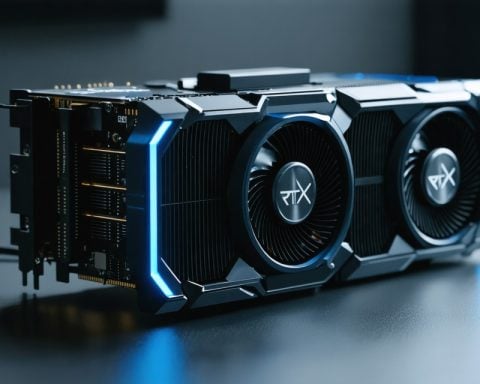In the rapidly evolving gaming industry, a groundbreaking trend is emerging that could redefine community interaction and monetization: Unity Shares. With the advent of blockchain technology, gamers are beginning to explore a shared economy where investments transcend monetary assets, fostering a culture of shared creativity and intellectual property.
What Are Unity Shares?
Unity Shares refer to digital tokens that represent fractional ownership of a game’s intellectual assets. These shares are built on blockchain technology, ensuring transparency and security. They allow developers and communities to co-own game features, characters, or even expansions. This shared ownership model promotes a vested interest in the game’s success and continuity, turning players into stakeholders.
The Future of Collaborative Gaming
This innovation holds the potential to enhance the gamer-developer relationship and encourage collaborative game development. By holding Unity Shares, players can have a say in the decisions affecting game updates and new expansions. This drives a deeper connection to the gaming experience and empowers players to participate in shaping the virtual worlds they adore.
Monetizing Across Platforms
Moreover, Unity Shares open new avenues for monetization, enabling gamers to trade shares across different platforms or further invest in game franchises they are passionate about. This convergence of gaming and investment lays the foundation for a decentralized gaming economy, paving the way for future developments that could see an entirely new genre of interactive entertainment.
As Unity Shares continue to gain traction, they’re destined to revolutionize how the gaming community collaborates, invests, and plays in this brave new world of digital interaction.
Will Unity Shares Bring a New Era of Gaming or Unintended Consequences?
The concept of Unity Shares isn’t just a buzz in the tech realm; it’s creating ripples that could redefine how gaming communities function at a foundational level. Beyond the touted benefits of shared ownership and involvement, what other implications does this have for gamers and developers alike?
Addiction or Autonomy?
While Unity Shares provide new opportunities for gamers to be stakeholders, concerns about increased addiction arise. The ability to invest financially in games could spark compulsive behavior, akin to the vortices seen in stock markets. Yet, this same mechanism might empower gamers, granting them meaningful control over the games they consume and potentially fostering healthier gaming habits through vested interest.
Culturally Inclusive or Exclusive?
Unity Shares could democratize game development, allowing for a diverse range of ideas to flourish, as players from varied backgrounds contribute their perspectives. However, this could also widen the gap between affluent gamers who can invest heavily and those who cannot, potentially skewing creativity toward the priorities of wealthier stakeholders.
Environmental Concerns
Blockchain’s energy consumption is a hotly debated topic, and the proliferation of Unity Shares could exacerbate these concerns. Despite the robust security and transparency blockchain provides, the environmental footprint remains a critical disadvantage.
With these complexities in mind, the gaming industry stands at a crossroads. Will Unity Shares lead to more inclusive and dynamic virtual worlds, or could they create unforeseen divides and challenges? This remains a pivotal question as the concept gains traction.
For more on blockchain technology and its applications, visit Coindesk.



















